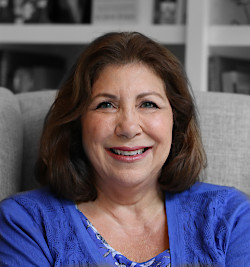
Job hunters say that one of the most challenging questions an employer might ask is, “What’s your greatest weakness?” Unfortunately, many of my clients seeking interview coaching have failed to answer this question correctly.
Terry is an over 50-year-old who noted that she had asked this question when she interviewed people, but stumbled when a prospective employer asked her to identify a critical weakness. Unfortunately, many people make a mistake and can’t give a solid response but instead tell the employer why they should NOT hire them.
This weakness question is a tricky one. Being unprepared can detour anyone. However, as I prepare people for their interviews, a new approach works very well when responding to an inquiring employer.
First, consider the question carefully. There are several different things that could note when answering. It’s crucial to select an answer that demonstrates to the employer how the weakness has no impact on performing the job. A new approach that is quite effective is to illustrate a skill gap you had and how you overcame it. Adecco, a large staffing company, conducted a study that found a whopping 92% of executives believe American workers are underskilled. According to Payscale.com, a top skill people lack is data analysis. Here’s the formula for answering the question using the lack of the skill.
To begin, select something you were not good at based on the fact that you hadn’t done it, and not on the fact you’re lousy at it. For example, understanding a budget might be something you struggle with. However, that would not be the weakness you picked. Instead, select something you hadn’t done or needed more training to perfect. You want the result to demonstrate you have mastered that skill.
Are you ready for your next interview?
A Smart Answer
Let’s review an example to understand better how this approach to answering the questions is used. So, data analysis is the one we’ll outline. This is a skill you had little or no experience with. During your conversation with the hiring manager, here is a powerful and positive way to answer the question, “What is your greatest weakness?”
“I began reading several articles, ensuring they came from reputable sources such as a top magazine, newspaper, or thought leader. I then found and watched some video tutorials on how to perform data analysis. These were helpful as I could see the steps and how the process worked.
“Next, I took a class so that I could become proficient. I also sought out a mentor who was excellent at data analysis. She showed me her method for performing this task. Next, I practiced creating dashboards after I had gathered data from many different sources, recognizing that the goal was to prepare the information so that it could assist senior leadership and me in making more informed decisions. Lastly, I approached a person inside our organization who was a data scientist. I got some hands-on coaching from him. The data collection part was very complicated, but I learned this new skill between the classes, the tutorials, and personal coaching.
“Today, I apply this ability quite frequently, and recently my boss made a few positive comments about my ability. So, although data analysis started as a weakness, I tried to master it.”
You now realize that this answer would require some thought to select the right skill you need. That’s what you identify as your weakness. Then you explain how you learned the skill by mentioning any tutorials, books, online articles, or classes.
Finally, conclude the answer by stating you have mastered it. It’s great to cite that a boss or coworkers have noticed that you excel in this task. This reply has proved to be a very effective way to answer the question. It’s a new way to respond and has been well-received by employers.
Create a compelling answer that you will use as you’re not going to get a second chance. Be honest, genuine, and authentic in your response. Write your answer and edit it until you think it’s the perfect reply. Then, before you come face-to-face with an employer, rehearse answering this challenging question. Practice until you feel confident, and you have your nervousness under control. The more prepared you are, the better you’ll do when you sit across from the hiring manager.
This article was originally published in Forbes.


